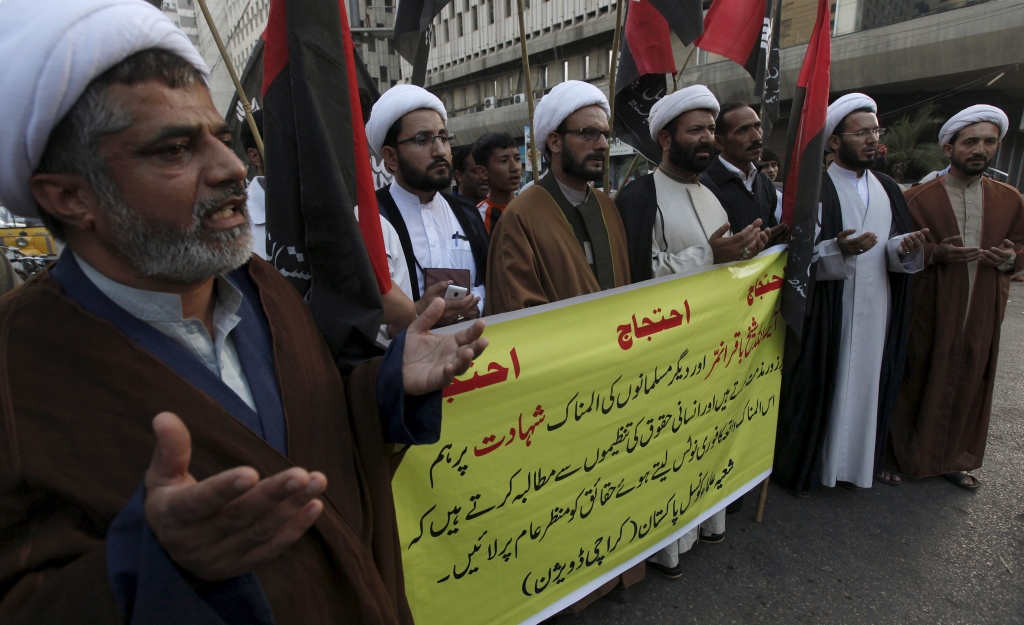European Union warns of ‘dangerous consequences’ of execution of a prominent Shi’ite
The move came after the Saudi Interior Ministry announced on Saturday that 47 people, including the prominent Shi’ite leader Nimr al-Nimr, were executed on terrorist charges.
Iranian Parliament Speaker Ali Larijani slammed Saudi Arabia for executing prominent Shiite cleric Sheikh Nimr al-Nimr, saying that it would put the Al Saud regime in a tough vortex.
Among those executed was Shia Muslim cleric Nimr Baqir al-Nimr, who led mass protests against Saudi authorities in eastern Qatif province before his arrest in July 2012.
The execution of a prominent Shi’ite critic of Saudi Arabia’s ruling royal family has caused worldwide outrage and a serious escalation of diplomatic tensions in the region, with unrest predicted in Shia-majority areas.
Saudi Arabia’s top cleric Grand Mufti Sheikh Abdulaziz Al Sheikh said the executions were performed in line with Islamic law and the need to safeguard the kingdom’s security, reports the Associated Press.
After Arab Spring protests erupted in 2011, Saudi Arabia and Iran entered into a fierce proxy war in Syria, where they support opposite sides of the conflict, and in Yemen, where Saudi Arabia has been bombing Iranian-allied rebels since March. The office of Hadi al-Mudaressi, an Iraqi cleric whose brother has a strong following among Bahraini Shiites notably, organised a protest near the mausoleum of Imam Hussein in Karbala.
Under the strict Islamic legal system in Saudi Arabia, the deaths sentence applies to cases of murder, drug offences and rape and at times in cases of adultery, apostasy and witchcraft.
Saudi Arabia says all those executed were convicted of acts of terrorism.
Iran’s foreign ministry had said on Monday it was willing to talk to Saudi Arabia after months of escalating tensions, but any chance of a rapprochement appeared to be derailed on Saturday as officials and clerics lined up to denounce the kingdom.
Iran’s foreign ministry spokesman Hossein Jaber Ansari strongly condemned Riyadh for executing Nimr despite repeated Iranian requests for clemency.
The wave of condemnation could harm Saudi Arabia’s efforts to form an Islamic alliance against the jihadist militants of Islamic State.
Iran, the main regional rival of Sunni-ruled Saudi Arabia, will close all its seminaries on Sunday to protest Nimr’s execution.
The United States, a staunch ally of Saudi Arabia, had what McClatchy’s Hannah Allam described as a “muted” response to the executions.
Mohammed al-Nimr wrote a series of comments on Twitter after the execution, expressing hope that “we will overcome sectarianism to be in a better position”.
Al-Nimr never denied the political charges against him, but maintained he never carried weapons or called for violence.
The move has already sparked tensions within the country’s Shiite minority, a demonstrations in several countries.
Lebanon’s Shia council called the execution a “grave mistake” while the Lebanese Shia Hezbollah militant group described the execution as an “assassination”.








